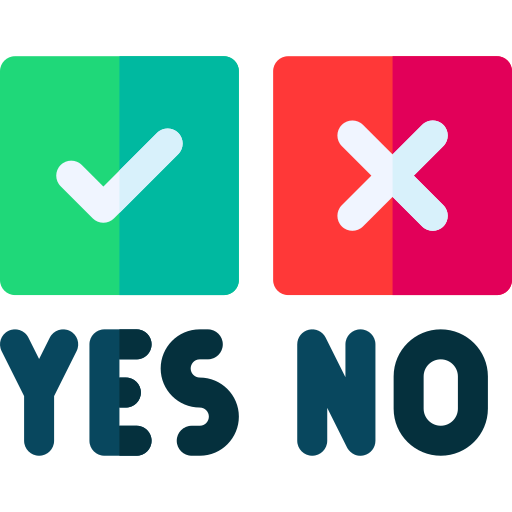
This logo isn't an ad or affiliate link. It's an organization that shares in our mission, and empowered the authors to share their insights in Byte form.
Rumie vets Bytes for compliance with our
Standards.
The organization is responsible for the completeness and reliability of the content.
Learn more
about how Rumie works with partners.
Do you admire businesspeople who confidently run large meetings? Maybe you dream of securing big international deals yourself.
 Fortunately, you can learn how to become a successful business communicator!
Fortunately, you can learn how to become a successful business communicator!
Communication in business
No matter which career path you choose in the business world, you'll need solid verbal communication skills.  As a businessperson, you'll often find yourself in scenarios where your speaking skills and ability to present yourself are decisive factors. Take, for example:
As a businessperson, you'll often find yourself in scenarios where your speaking skills and ability to present yourself are decisive factors. Take, for example:
Negotiations
Stakeholder meetings
Sales presentations
Team briefings
Brainstorming sessions
Follow these 5 tips to become an excellent speaker in any business situation.
Tip #1: Speak clearly and confidently
We trust people who speak confidently. A confident business speaker is well-prepared, knowledgeable about their topic, and responsive to the audience.
When you're pitching your brilliant business idea, clear speech is very important! Moderate pace, clear pronunciation, and a logical order of thoughts are key elements of presenting your message effectively.
Develop this verbal communication skill

Work on your pronunciation: do some diction exercises like tongue twisters
Train to speak up: take the initiative to give presentations to boost your confidence
Prepare in advance: organize your thoughts and practice public speaking in front of a mirror or with friends
Simplify your message: keep it concise and to the point
Tip #2: Learn the art of negotiation
Nobody wants to do business with a stubborn person. At the same time, you don't want to be too soft and risk being taken advantage of in the tough business world. 
It's important to find a happy medium — a win-win solution for both sides. For that, you need to know how to present your arguments effectively to convince people.
Develop this verbal communication skill

Take courses on negotiation: learn negotiation techniques
Learn to control your emotions: difficult negotiations can test your patience
Simulate negotiations: practice withrole-playing exercises
Tip #3: Build networking habits
Networking means building and maintaining positive contact with your colleagues. Approaching an interesting speaker at an international conference should be a no-brainer for you.  With the right networking, you'll be the first to know about the newest industry trends and business opportunities. It'll also help you get support and promote your brand.
With the right networking, you'll be the first to know about the newest industry trends and business opportunities. It'll also help you get support and promote your brand.
Entrepreneurs understand that their network is their net worth.
— Forbes.com, "5 Secrets Of Millionaire Entrepreneurs That Will Help You Get Rich"
Develop this verbal communication skill

Create a professional social media profile
Create a personal branding statement: give a summary of your professional activity
Register for business conferences:attend events to meet new people
Learn self-presentation techniques: master the elevator pitch
Tip #4: Learn to set boundaries
As a business person, it’s important to be flexible and diplomatic, but there are times when you must know how to say "no". 
Time is a valuable currency in the business world. Being able to say "no" can save you a lot of time and protect you from stress!
Develop this verbal communication skill

Keep track of your tasks and prioritize them: use tools like to-do lists
Assess tasks: define what makes a task professionally interesting for you
Learn how to say "no" with respect
Develop a habit of giving feedback: when declining a task, give a short explanation and suggest an alternative solution
Tip #5: Be aware of the context
Imagine blowing a big international deal just because you said something culturally inappropriate.
You'll be communicating with people from different backgrounds. You'll also meet your colleagues in different settings.
A conference room meeting and casual negotiations at lunch could be very different. You should know how to adjust your communication style to match the situation.
Develop this verbal communication skill

Be an active listener
Research your partners beforehand: especially if you work with people from different places
Adjust your tone of voice: adapt the way you speak and behave to suit the context
Quiz
Michelle is the CEO of a clothing brand. She's invited to the international conference for entrepreneurs to give a talk. What could Michelle do to make the most of the networking at the event? Select all that apply:
Researching speakers beforehand, preparing her pitch and adjusting the presentation to the audience's needs are great ways for Michelle to meet new people and make useful business connections. However, organizing team building during the event wouldn't necessarily expand her networking because she'd communicate with colleagues she already knows.
Take Action

This Byte has been authored by
Tomara Gotkova
Linguist, Educator
PhD